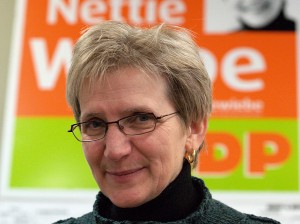Western Producer | 2009-07-30
By Nettie Wiebe
WHILE the global recession was the key topic for the G8 leaders this July, the subject of food security also made it onto the agenda. The spike in food prices last winter has put food issues on the front burner, especially for food importing countries.
While other G8 leaders considered agricultural aid and trade issues, the prime minister of Japan, the largest single food importer, had something more specific in mind. He pushed for the adoption of a set of principles for investment in farmland, making it clear that such principles should be non-binding guidelines that would promote investment for increased production and food security. So the final declaration issued from their summit meeting in L'Aquila, Italy, includes a clause stating that the G8 will establish an international protocol concerning farmland acquisition.
This may seem like a small footnote. But it points to a major new trend in the global food system. A handful of rich, food importing countries and their corporations are on a land shopping spree. They are signing 99 year leases on good agricultural land and water rights with unprecedented speed - and little scrutiny.
It is estimated that the control over more than 50 million acres of land has been transferred in such transnational deals since 2006. Japan, for example, has already acquired control over three times as much farmland abroad as they have at home.
To date, the key foreign investors in farmland are China, Japan, South Korea, Libya and countries around the Persian Gulf. Much of the targeted land is in Africa.
While participating in farmer meetings in Mali recently, I heard about the so-called land grabs first-hand. Mali, one of Africa's poorest countries, has accepted an investment offer from Libya. Libya will use its wealth of petro-dollars to buy control over 250,000 acres of Mali's best rice producing land.
The promise for Mali is infrastructure investment, new technologies, higher productivity and jobs.
For its part, Libya has contracted with China for the construction of the canals and other infrastructure, as well as to supply high yield (lower quality) hybrid rice seeds. Although the deal says that the rice produced is for both local and export consumption, observers note that Libya is poised to undertake a major new development in Tripoli that may require up to a million migrant workers coming from Bangladesh and elsewhere. A lot of cheap rice will be needed in Libya.
Mali peasants are concerned about their own security and the food security of their neighbours. Giving up control over land, water and seeds does not look like a recipe for food security.
Outsourcing food production is quickly becoming part of the global food system. Investors are touting the benefits of new technologies, infrastructure, jobs and increased productivity for poor countries.
But who will control these resources? For whose benefit and profit? Who will eat? And who will go hungry? These are the questions that need to be considered before this next international round of farmland takeovers continues.
Nettie Wiebe is a farmer in the Delisle, Sask., region and a professor of Church and Society at St. Andrews College in Saskatoon.











